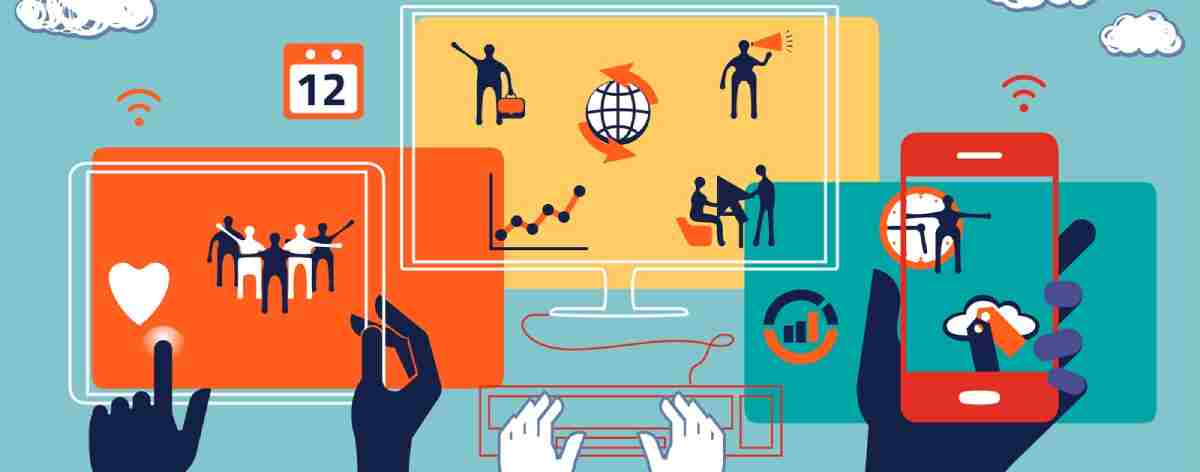The labor market demands digital skills, that is, workers who master, in addition to other languages or their academic specialty, the essential tools to function fluently in the technological age. We are talking about knowledge about electronic devices, networks, cyber security, communication systems or data analysis, among others.
Table of Contents
NEW DIGITAL PROFESSIONALS
The workplace robotization as a fundamental extra of the educational program is as of now history. The innovative upheaval is making new callings and laborers need advanced abilities so as not to be abandoned. The European Center for the Progress of Vocational Training (Cedefop) gauges that soon 90% of opening in Europe will require a computerized information on some sort.
The most recent report from the European Commission, International Digital Economy and Society Index (I-DESI 2018), shows that 80.5% of Australians, 80.2% of Icelanders and 79.3% of New Zealanders have with advanced abilities. This makes them the three most evolved nations on the planet around here, trailed by South Korea with 75.6%. At the base are China, with 40.5%, and Brazil, with 39.2%. Here, the United States comes to 56% and the European Union 58% of residents with advanced abilities.
WHAT ARE DIGITAL COMPETENCES AND WHAT ARE THEY FOR?
Digital skills are not just about erudition and developing technology skills. They also imply the acquisition of knowledge, values, attitudes, regulations and ethics about ICTs to get the most out of them. In addition, they contemplate the reflection and responsible use of the data obtained through their use.
In the workplace, there is a close connection between the lack of digital skills and the difficulty in finding a job: digitization enhances our personal and professional skills, and that gives us more options to get a job.
Digital skills allow us to:
- Optimize times and costs. This would mean the delivery of projects within the deadlines and quality parameters established in advance, also respecting the budget and the original requirements.
- Understand the interactive potential of electronic devices such as smart phones, tablets or laptops, incorporating new digital routines into our professional work.
- Print speed to reflection, creativity and innovation. Digital skills use technological tools that accelerate innovation and make us more productive, more flexible and more capable of reacting and anticipating unforeseen events.
- Manage corporate digital identity with meaning. Digitization provides us with knowledge, business intelligence and competitor analysis, giving us criteria to move information and help brand positioning.
- Improve work effectiveness and efficiency. Digital skills help us effort as a team without relying on a physical space. Electronic devices and media foster coordination and collaborative environments.
THE MOST DEMANDED DIGITAL SKILLS
· cybersecurity
Although computer security is a multifaceted field, we should have at least basic notions.
· Customer Support
Companies value the mastery of third-party support tools, such as CRMs or social networks.
· Marketing
Knowing how to sell and accomplish the contents of a blog is another of the most valued digital skills.
· Social networks
It is not adequate to upload photos and post. We should learn how to build a strategy on Twitter, Facebook, etc.
· Digital image and video editing
Editing and offering valuable content through infographics or tutorials will always be highly valued.
· Cloud technology and electronic commerce
Getting around with tools in the cloud or knowing something about e-commerce is already essential in many companies.
· Specific software
Controlling data analysis or business management programs will give us many points to find work.
· web positioning
Recognize how a search engine works so that our content is among the first results.
DIGITIZATION, A NEW IMPULSE FOR EQUALITY
UNESCO focused its 2018 Mobile Learning Week in Paris on the importance of digital skills as drivers of social inclusion. The inequalities in this matter are evident for this international organization, which denounces discrimination in access to technological knowledge in the world for socioeconomic, racial, educational and gender reasons.
Some NGOs such as Plan International, which watch over children’s rights and gender equality, claimed in 2017 that girls were five times less likely than boys to study a technological career. According to this organization, Africa was then the most unequal continent in the world in digital gender issues, with a gap of 23% compared to 2% in America.
On account of Europe, the Eurostat organization distributed information from 2017 where the computerized partition by orientation can likewise be seen. While 60% of Europeans somewhere in the range of 16 and 74 years of age dominated essential advanced abilities, European ladies of a similar age stayed at 55%.
Innovation ought not be a justification for prohibition. Yet rather a device to enable us, assisting us with conquering misfortune and find new open doors. Training in computerized abilities is, for certain, the most ideal way to beat this test. Digitization isn’t in conflict with social and financial advances. In actuality, it ought to bring us thriving, social balance and, eventually, a more serious economy.

